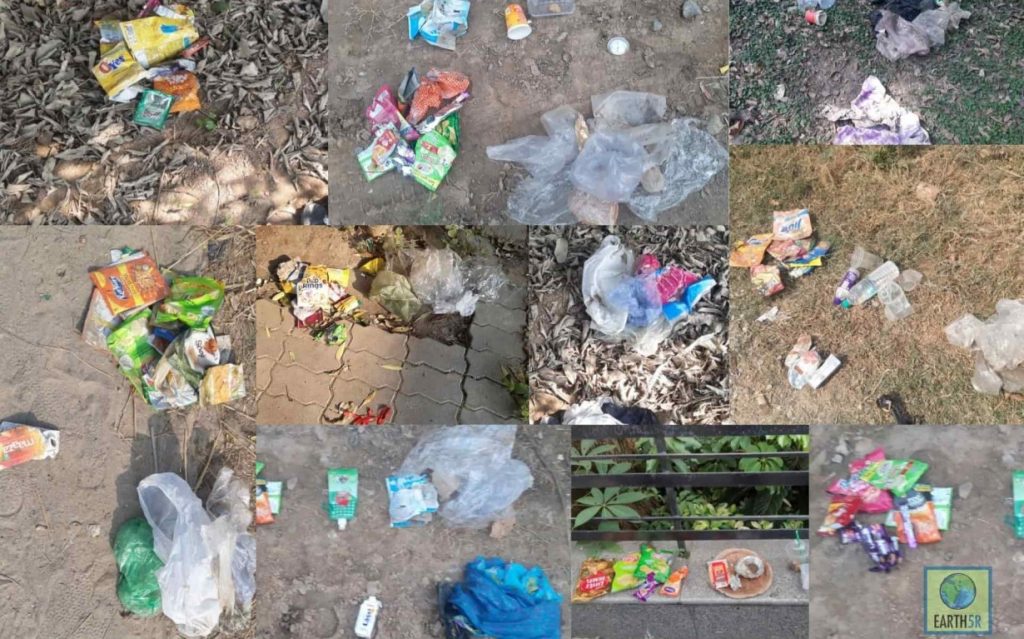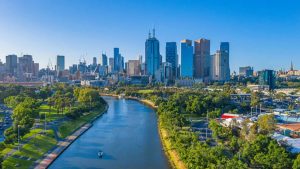
Managing Plastic Waste At Kurukshetra, India
It is heart wrenching to see how much plastic has become a part of one’s daily life. Most people often do not pay heed to the plastic waste all around them and thus add to the global issue of mismanaged plastic waste seen today.
The clean up and segregation activity under the “Know Your Plastics” project was done in an effort to make citizens aware about the plastic menace and encourage them to step out of their homes and help in the cause Earth5R and many other organizations are fighting for.
Managing Plastic Waste Through The “Know Your Plastics” Project
Cleanup and sampling was conducted by Earth 5R volunteer, Tanya Mittal, at Kurukshetra, Haryana. As a resident of the city she believes that “A tourist destination, a pilgrimage is no different from other parts of the world, its plastic all around, but working with Earth5R helped me to get rid of the veil of ignorance about my surroundings and recognize and accept the reality and do some real work”
A tourist destination, a pilgrimage is no different from other parts of the world, its plastic all around, but working with Earth5R helped me to get rid of the veil of ignorance about my surroundings and recognize and accept the reality and do some real work– TANYA MITTAL, EARTH5R VOLUNTEER @KURUKSHETRA, INDIA
Plastic Waste Data From Kurukshetra
The data she collected was analyzed and the results were as follows :
- A total of 110 items were collected
- MLPs constituted the highest amount of waste at 25%
- This was followed by polythene bags (LDPE) at 22%
- HDPE constituted 18%
- PET stood at 14.3%
- Tetrapacks and synthetic fibers made up 10.7% and 7.1% of the waste respectively
“Most of the waste in the city is dumped into empty plots with stray dogs, cows, and other animals often found swallowing it, here proper dustbins are not installed and people feel that it is convenient to throw away their plastic waste into nearby empty spaces, parks, and other public places”– TANYA MITTAL, EARTH5R VOLUNTEER @KURUKSHETRA, INDIA
Plastic Waste In India
- According to the Central Pollution Control Board (CPCB), India generates close to 26,000 tonnes of plastic a day, and over 10,000 tonnes a day of plastic waste remains uncollected.
- According to a Federation of Indian Chambers of Commerce and Industry (FICCI) study the plastic processing industry is estimated to grow to 22 million tonnes (MT) a year by 2020 from 13.4 MT in 2015 and nearly half of this is single-use plastic.
- Though India’s per capita plastic consumption is less than 11 kg, (nearly a tenth of the United States of America 109 kg), the country’s plastic consumption will only grow larger in the future.
Why We Are Not Able To Manage This Plastic Waste?
Though plastic can be easily generated, the process of recycling often is considered difficult. This can be because of the following reasons:
- There are thousands of variations of plastics as a result of which not all types can be recycled.
- Households lump all plastics together for recycling and it has to be carefully sorted by type, which is expensive for municipals and other organizations to do.
- Though there is much conversation about replacing polythene bags, for items such as milk, fish, cottage cheese etc. usually there are not many alternatives.
- Packaging companies are not as committed to green packaging as they portray.
- At the local level, people are less aware and pay very little attention towards proper disposal of plastic waste.
Any Solutions?
As a global citizen, there are multiple ways by which one can help stop the plastic waste crisis:
- Reduce: The first step in reducing plastic waste is to minimize single-use plastics by supporting a tax on plastic bags, restraint on manufacturing of plastics, and using alternatives of plastic or biodegradable plastic.
- Reuse: Reusing plastics can reduce the demand for new plastics, hence it can act as the natural restrain on plastic manufacturing.
- Recycle: Plastic recycling is the process of recovering waste or scrap plastic and reprocessing it into useful products. It offers several benefits like: Economic benefits due to value addition, generation of employment, reduced depletion of fossil fuel reserves and reduced landfill problems. Recycling plastics also requires less energy.
- Recovery: It is the process of converting non-recyclable plastics into a range of useful forms of energy and chemicals for industry. Since plastics contain mainly carbon and hydrogen, with similar energy content to conventional fuels such as diesel, they can be used as a potential source of fuel.
Reading Greta Thunberg’s ‘no one is too small to make a difference’ I understood that I, today can start to make a difference, I believe people need to understand how important it is to live in tandem with our ecosystem and be a part of it rather than governing it”– TANYA MITTAL, EARTH5R VOLUNTEER @KURUKSHETRA, INDIA
Earth5R is a citizen-led initiative which encourages people to realize the importance of taking action now, no matter what position one holds and no matter what ideology one believes in. Irrespective of diversity global citizens must collaborate and join hands for the betterment of not just future generations but also the earth.
Reported by Tanya Mittal; Edited by Krishangi Jasani




